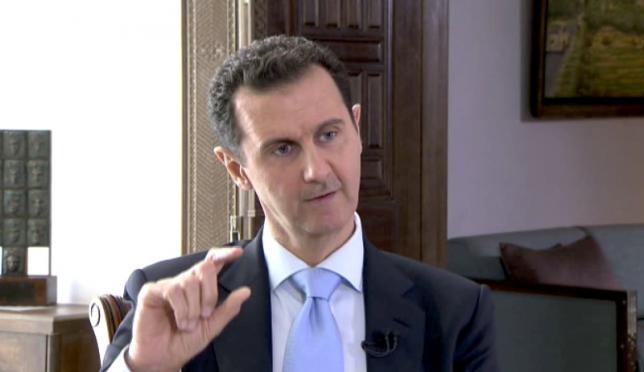
Syrian President Bashar al-Assad speaks during a TV interview in Damascus, Syria in this still image taken from a video on November 29, 2015. REUTERS/Reuters TV courtesy of Czech Television/Files
Syrian President Bashar al-Assad said he would keep “fighting terrorism” while peace talks took place, in an interview with news agency AFP in Damascus on Thursday , just hours before an agreement was reached in Munich on arranging cessation of hostilities and the urgent delivery of humanitarian aid to hundreds of thousands of civilians in besieged areas.
Assad said he would retake the whole country and that his armed forces would try to retake all of Syria “without any hesitation”. However, the involvement of regional players “means that the solution will take a long time and will incur a heavy price,” according to excerpts of the interview published on AFP’s website.
In the interview, which AFP said was Assad’s first in about two months, the Syrian leader reassured his willingness to talk, yet offered nothing to the opposition forces who have been seeking to overthrow him since 2011. “We have fully believed in negotiations,” he said. “However, if we negotiate, it does not mean that we stop fighting terrorism. The two tracks are inevitable in Syria.”
Assad also said that the purpose of the battle for Aleppo was to cut the route north to Turkey.
AFP cited Assad saying that the country’s “problem” can be resolved in less than a year on condition that opposition supply routes from Turkey, Jordan and Iraq be cut.
Assad’s defiant tone does not promise of speedy implementation of the fragile and tentative agreement drawn up by the International Syria Support Group, including the US, Russia, Britain, Iran, Saudi Arabia and others.
